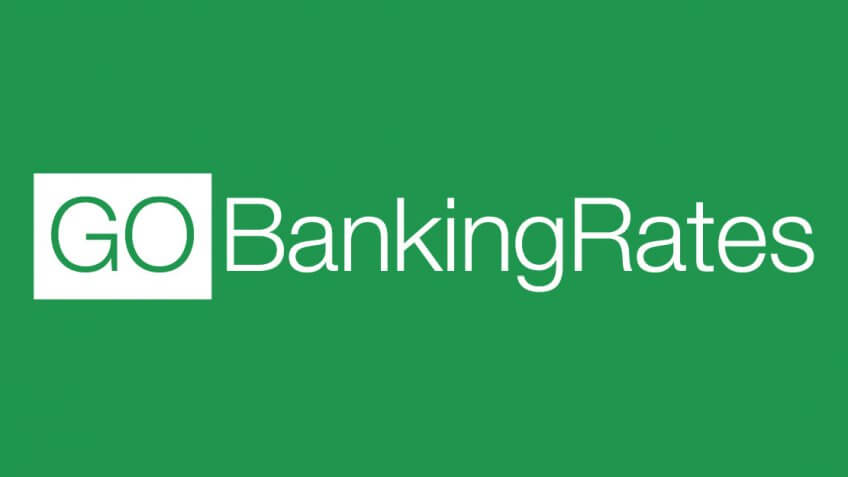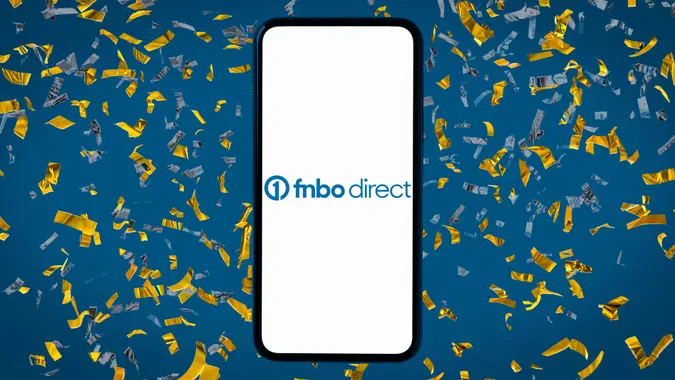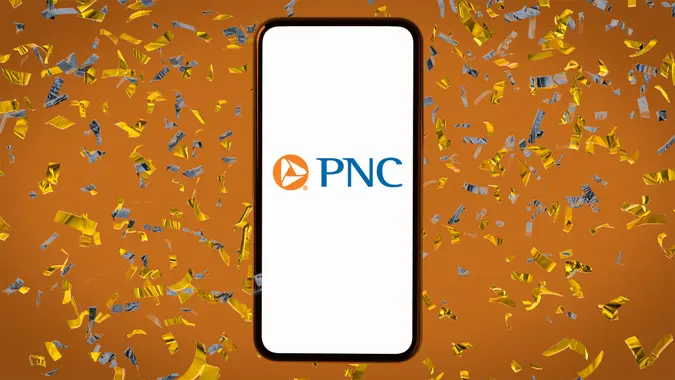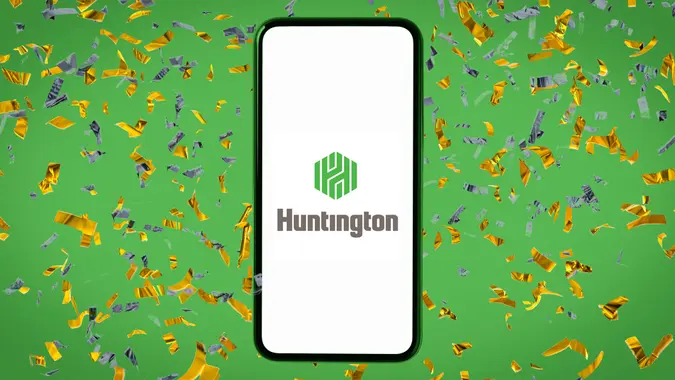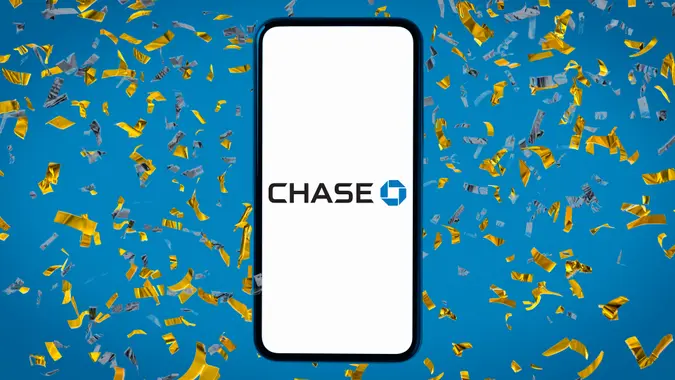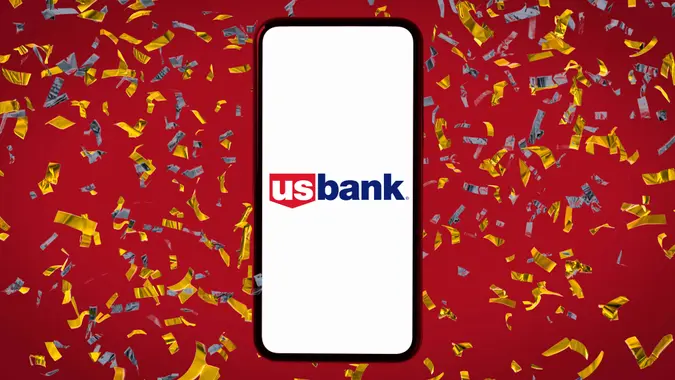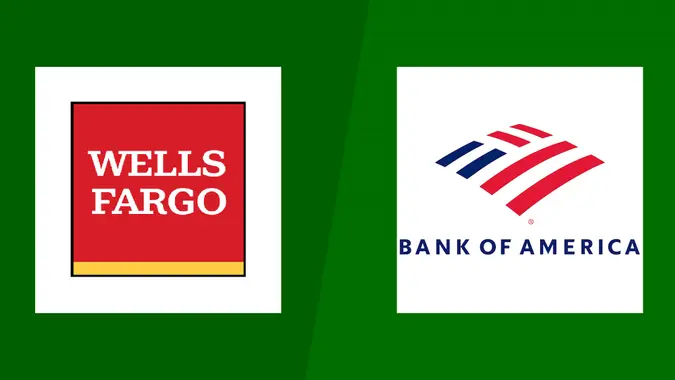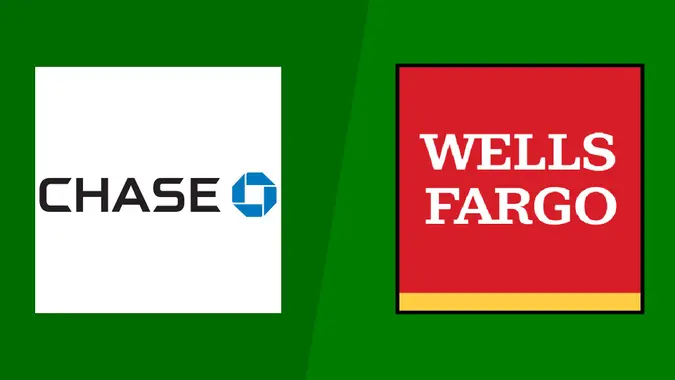Chase ATM Withdrawal and Deposit Limits

Commitment to Our Readers
GOBankingRates' editorial team is committed to bringing you unbiased reviews and information. We use data-driven methodologies to evaluate financial products and services - our reviews and ratings are not influenced by advertisers. You can read more about our editorial guidelines and our products and services review methodology.

20 Years
Helping You Live Richer

Reviewed
by Experts

Trusted by
Millions of Readers
The Chase ATM withdrawal limit depends on your account type and the ATM you use. For most customers, the daily limit ranges from $500 to $3,000. This guide will break down everything you need to know about Chase ATM limits, including how to increase them and other ways to access cash.
What Are Chase ATM Withdrawal Limits?
If you need to withdraw money from a Chase ATM, what are the limits? You have different limits based on whether you have a basic debit card or are a Chase private client. Your ATM location can also impact your withdrawal limit.
| Account Type | In-Branch ATM | Out-of-Branch ATM | Non-Chase ATM |
|---|---|---|---|
| Chase Debit Card | $3,000 | $1,000 | – $500 – $1,000 if account was opened in Connecticut, New Jersey or New York |
| Chase Private Client | $3,000 | $2,000 | $2,000 |
How To Check Your Chase ATM Withdrawal Limit
There are three ways to check your Chase ATM withdrawal limit. You can log in to the app, check your account on the website or call customer service.
Log in to the App
Using your Chase mobile app can help you learn your ATM limits. The Chase app will give you real-time updates. You can follow this step-by-step process:
- Log in to your Chase mobile app.
- Navigate to your checking or savings account.
- Choose your debit card.
- Look for card controls.
Check on the Website
Logging on to your account on the Chase website will help you find out your ATM withdrawal limits. The process to do so is similar to the Chase app.
- Log in to your account.
- Select your account.
- Look for details regarding your withdrawal limits.
Call Customer Service
If you are unable to find your withdrawal limit on the app or the website, you can call customer service. You can call 1-800-935-9935 and ask about your withdrawal limits.
How To Change Your Chase ATM Withdrawal Limit
It’s possible to change your Chase ATM withdrawal limit by either visiting a branch or calling customer service.
How To Prepare
There’s a way to prepare to request a change in your Chase ATM withdrawal limit if it is in person or over the phone. Keep in mind that the ATM withdrawal change may not apply to out-of-branch ATMs.
Here’s how you can prepare:
- What is the reason for the increase? Be prepared to let the representative know why you’re requesting the increase. Common reasons are for travel, an emergency or a down payment on a house or car.
- What is your relationship with the bank? You may want to highlight how long you’ve been a customer, detail your positive account history, no overdrafts, etc., and your current account balance.
- What is your account type? Your account type can determine your ATM transaction limits. Some premium accounts have a higher ATM withdrawal limit.
Visit a Branch
You can visit a branch in person and request an increase in your Chase ATM withdrawal limit. Visiting in person and talking to a bank representative can be an effective way to increase your Chase ATM withdrawal limit. Be prepared to answer questions on the reason for the change.
Call Customer Service
An easy way to increase your Chase ATM withdrawal limit is to call customer service. You can call the general customer service line for personal banking at 1-800-935-9935 and request the change.
How To Withdraw More Cash if You’ve Reached Your Limit
If you’ve already withdrawn the maximum amount you can with your Chase debit card but still need cash, there are a few other ways to get additional cash. Here are some options:
- Cash-back at retailers
- In-branch withdrawals
- Cashing a check at a Chase branch
Smart Tip: Be Ready for Big Expenses
Plan ahead for large cash needs by visiting a branch or requesting a temporary limit increase.
Cash Back at Retailers
If you make a purchase using your Chase debit card at a grocery store or other retailer, you may be able to get additional cash back. When you use the PIN pad to pay for your purchase, you will see a screen asking if you want cash back and, if so, how much. The clerk will give you the amount you requested once the transaction is complete.
In-Branch Withdrawals
You can always walk into a branch and withdraw cash up to the amount that is available in your account at the time. This is typically done using one of your own Chase checks.
Cashing a Check at a Chase Branch
Another option is to cash a check at a Chase branch. If it’s a check written in your name by a third party, you’ll need to have enough funds in your account to cover the amount since check deposits are usually not available until the following business day.
What Are Chase ATM Deposit Limits?
There are no dollar limits for deposits. The limitations regarding deposits are because of the physical constraints of the machine.
- No dollar limit: You can deposit a large sum of cash without hitting a dollar daily cap.
- Physical limits: Chase ATMs can physically accept up to 30 checks per transaction. In terms of cash, different Chase ATMs can accept a varying number of bills.
- Multiple transactions: If you need to deposit funds that exceed the limit, you can perform multiple transactions.
How Quickly Are Funds Available After a Chase ATM Deposit?
Fund availability depends on the type of funds you deposit.
Fund Availability Based on Type of Funds
| Type of Funds | Availability | Notes |
|---|---|---|
| Cash deposits | Same business day | Available immediately |
| Check deposits | Next business day, with exceptions for holds | – First $275 available next business day – Remaining funds will likely be available second business day |
| Wire transfers | Same business day |
Chase ATM Fees and Security Tips
Chase doesn’t charge fees for withdrawing from an ATM if you go over the limit. However, the transactions will be declined.
Here are the ATM fees for using non-Chase ATMs:
- Domestic non-Chase ATMs: You will be charged a fee from Chase if you withdraw from a non-Chase ATM. You may be charged a surcharge fee from the ATM owner as well.
- International ATMs: A withdrawal at an international ATM will have a larger fee, and the ATM operator will likely charge a fee as well. These fees tend to be higher than domestic fees.
- Savings account withdrawals: Be aware that if you withdraw from your savings account, you could exceed withdrawak limits. If you exceed the limit, you may be charged an additional fee.
Security Tips for Withdrawals
Be safe when you’re withdrawing from ATMs. Here are some tips to follow:
- Pay attention to your surroundings
- Cover your pin
- Check the key panel and the card reader to make sure no tampering is involved
- Secure your cash
- Avoid multiple transactions in a short period of a time
How To Avoid ATM Fees
There are ways to avoid paying ATM fees:
- Use Chase ATMs: By planning ahead and withdrawing from a Chase ATM, you can avoid fees.
- Plan ahead: If you need to make a large withdrawal, plan on visiting a Chase branch or Chase ATMs.
- Cash back: If you need a small amount of cash, you can get cash by paying for a purchase with your debit card and asking for cash back.
Know Your Chase ATM Withdrawal and Deposit Limit
Understanding Chase ATM withdrawal and deposit limits can help you manage your cash flow effectively. Whether you need to withdraw more cash or deposit a large sum, knowing your options ensures a smooth banking experience. It is easy to avoid fees if you use Chase ATMs — plan ahead for large withdrawals, request limit changes in person or with customer service and use ATMs with safety concerns in mind.
Karen Doyle contributed to the reporting for this article.
J.P. Morgan Wealth Management is a business of JPMorgan Chase & Co., which offers investment products and services through J.P. Morgan Securities LLC (JPMS), a registered broker-dealer and investment adviser, member FINRA and SIPC. Insurance products are made available through Chase Insurance Agency, Inc. (CIA), a licensed insurance agency, doing business as Chase Insurance Agency Services, Inc. in Florida. Certain custody and other services are provided by JPMorgan Chase Bank, N.A. (JPMCB). JPMS, CIA and JPMCB are affiliated companies under the common control of JPMorgan Chase & Co. Products not available in all states.
Editorial Note: This content is not provided by any entity covered in this article. Any opinions, analyses, reviews, ratings or recommendations expressed in this article are those of the author alone and have not been reviewed, approved or otherwise endorsed by any entity named in this article.
Editorial Note: This content is not provided by Chase. Any opinions, analyses, reviews, ratings or recommendations expressed in this article are those of the author alone and have not been reviewed, approved or otherwise endorsed by Chase.
 Written by
Written by  Edited by
Edited by 






